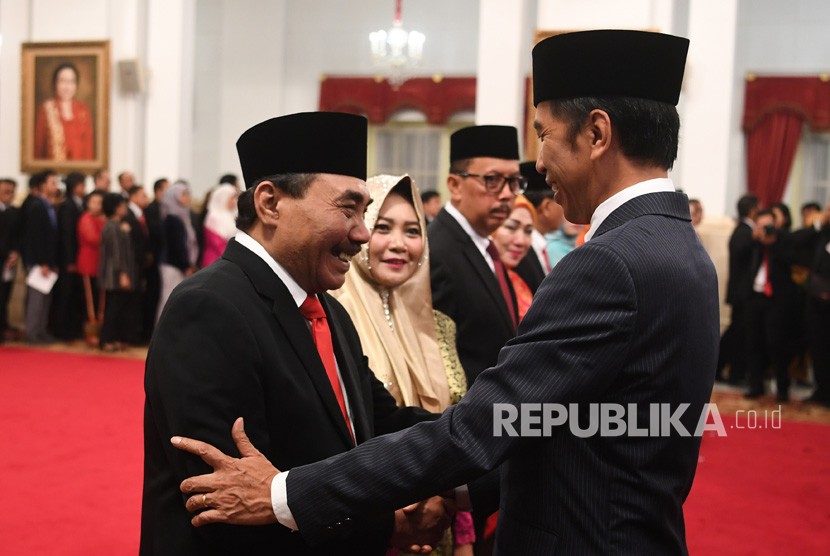REPUBLIKA.CO.ID, JAKARTA -- President Joko Widodo (Jokowi) witnessed the swearing in of seven commissioners of the Witness and Victim Protection Institution (LPSK) for the 2018-2023 period. The swearing-in ceremony was held at the State Palace, here, Monday.
The seven commissioners are Hasto Atmojo Suroyo, Brig. Gen. Achmadi, Antonius Prijadi Soesilo Wibowo, Edwin Partogi Pasaribu, Livia Istiania DF Iskandar, Maneger Nasution, and Susilaningtias. The seven were appointed as LPSK commissioners based on Presidential Decree No. 232/P/2018 on Appointment of LPSK Members, dated December 26, 2018.
Of the seven commissioners, two are old members, specifically Edwin Partogi Pasaribu and Hasto Atmojo Suroyo, while five are new members. Through a law, Indonesia had established the LPSK in 2008 to provide protection and other rights to witnesses and victims of crimes, including terrorism.
Also read: LPSK hands out compensation fund to terror attacks' victims
The objective behind offering such protection is to provide a sense of security to witnesses and victims of crimes, particularly if they are to provide relevant information to the court.
In general, witnesses and victims of a crime are entitled to certain rights, including but not limited to protection for their safety as well as their families and properties, to receive information on the case and the court verdict on it, to receive legal advice, and to get new identities. Victims of crimes of terrorism, or their inheritors, may also receive financial compensation from the government, through a court order.


